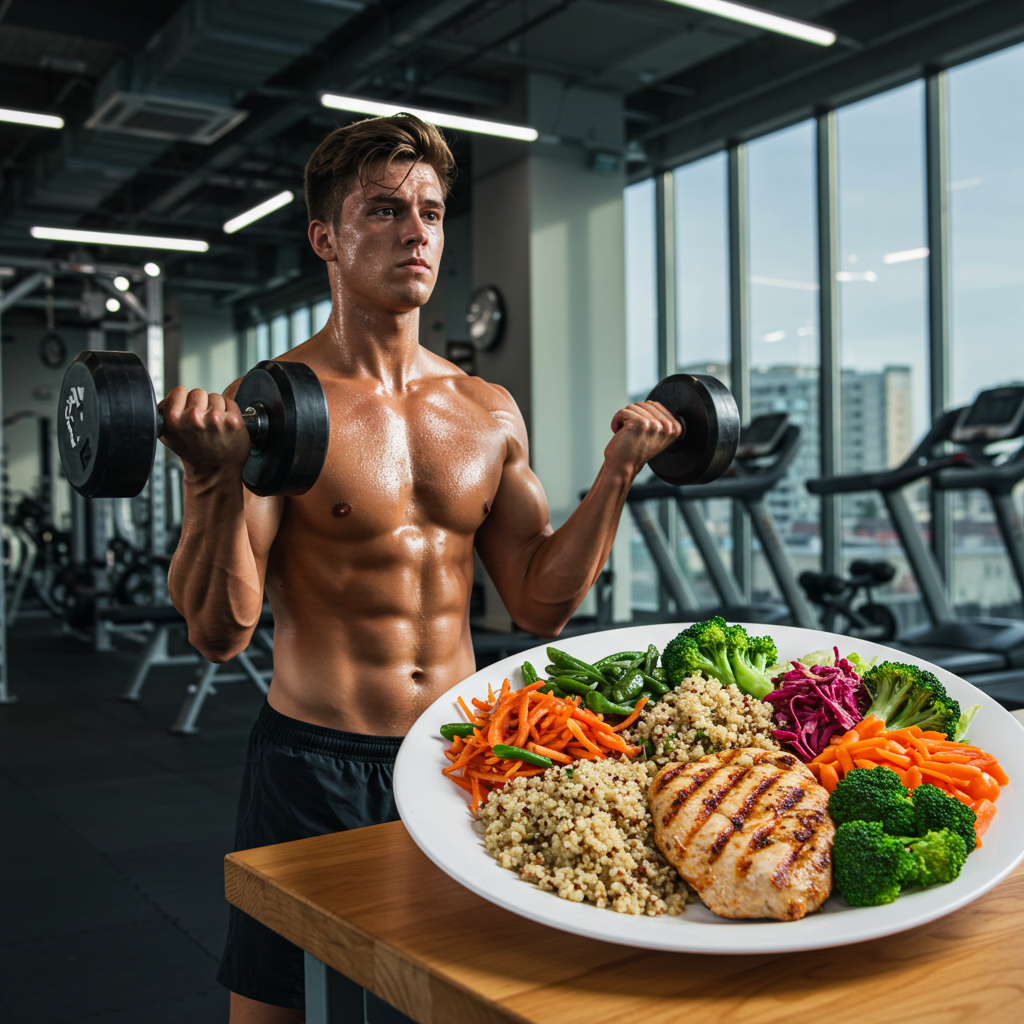We all know that exercise and a healthy diet are crucial for fitness. However, the importance of fitness nutrition is often underestimated. Many mistakenly believe they can eat whatever they want as long as they exercise enough to “burn it off.” This is a harmful myth. True fitness nutrition is about fueling your body with the right nutrients to support strength, health, energy, and sustainable weight loss.
The Foundation of a Healthy Diet:
A balanced diet, incorporating all food groups, is essential. Remember the “go, glow, and grow” foods from your childhood? The core principles remain: you need proteins, carbohydrates, fats, vitamins, and minerals. This translates to a diet rich in fruits, vegetables, lean meats, fish, dairy (or dairy alternatives), and whole grains. Prioritize whole, unprocessed foods whenever possible.
Beyond Food Groups: Timing and Moderation:
Healthy eating isn’t just about what you eat, but also when and how much. Avoid extreme diets, like very high-protein or very low-carb plans, as they can disrupt your body’s natural processes. Instead, focus on balanced portions from all food groups, spread across five to six smaller meals throughout the day.
Never skip breakfast! It truly is the most important meal. Eating breakfast jump-starts your metabolism and prevents overeating later in the day. When you skip meals, your body goes into “starvation mode,” making you more likely to crave sugary, unhealthy snacks.
Smart Snacking and Hydration:
When hunger strikes between meals, reach for healthy snacks like fresh fruits (apples, bananas, pears), or a serving of yogurt. Yogurt provides calcium, protein, and beneficial probiotics for gut health.
While it’s best to limit fast food, it’s not entirely off-limits if you choose wisely and eat in moderation. However, sugary drinks are a major pitfall. Swap soda for water with your meals. Fruit juice, unless freshly squeezed, is often loaded with added sugar. Water is always the best choice for hydration.
Mindful Eating and Food Preparation:
Fitness nutrition also involves how you eat. Practice mindful eating: chew your food thoroughly and savor your meals. Eat when you’re truly hungry, not when you’re stressed or emotional. Stop eating when you’re full.
Finally, pay attention to how your food is prepared. Opt for healthier cooking methods like steaming, grilling, or stir-frying instead of deep frying. Stock your pantry with healthy ingredients to make nutritious meal preparation easier.
Key Takeaways for Weight Loss:
- Prioritize whole, unprocessed foods: Focus on fruits, vegetables, lean proteins, and whole grains.
- Eat regularly: Aim for five to six smaller, balanced meals throughout the day.
- Don’t skip breakfast: It’s crucial for metabolism and preventing overeating.
- Snack smart: Choose fruits, yogurt, or other healthy options.
- Hydrate with water: Avoid sugary drinks.
- Practice mindful eating: Chew thoroughly and eat when you’re hungry.
- Cook healthily: Opt for steaming, grilling, or stir-frying.
Eating for health and fitness is a lifestyle change, not a quick fix. By focusing on balanced nutrition, mindful eating, and healthy food preparation, you can achieve sustainable weight loss, improve your energy levels, and enhance your overall well-being.
🔥 Supercharge Your Metabolism & Burn Fat Naturally with Mitolyn! 🔥
Tired of sluggish energy, stubborn fat, and slow metabolism? Mitolyn is the game-changing formula designed to boost your mitochondria, accelerate fat burning, and fuel your body with natural energy!
✅ Enhance Metabolism for faster fat loss
✅ Increase Energy Levels to power through your day
✅ Support Cellular Health with powerful antioxidants
🚀 Don’t wait! Take control of your metabolism today! 🚀




